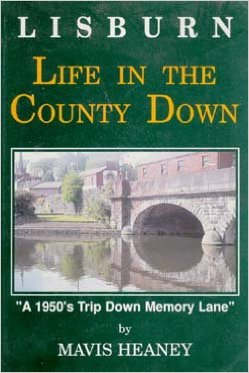Decades and Apostrophes: 1880s or 1880’s? January 16, 2017
Author: Beach Combing | in : Actualite, Contemporary , trackbackReaders of this blog will now have to excuse Beach for possibly the single most boring post in strangehistory history, but the following has been rankling inside for some time. 1880s or 1880’s? This might seem unimportant, but if you spend several hours a day reading books about the past it starts to matter. How should we write decades: did Christ die in the 30s or 30’s; were the 1920s difficult or were those the 1920’s?
This is not just a style question like, say, the difference between ‘19th-century books’ and ‘nineteenth-century books’: the first is horrible to look at but it is not ungrammatical. The fact is that the use of an apostrophe for decades is insanely wrong: 1660s is correct; 1660’s is a war crime. There are two reasons to use an apostrophe in English: an ellipsis (e.g. ‘I don’t know’, where the apostrophe takes the place of an ‘o’); or to express the Saxon genitive (e.g. ‘Caesar’s campaign in Gaul’ where the apostrophe is a convention showing possession, like the genitive ‘s’ in German to which it is related).
Yet oodles of people and some historians use apostrophe ‘s’ with decades. Type ‘1950s’ into Google and you get 115 million results; type ‘1950’s’ and you get 46 sodding million. This might be the most mainstream grammatical error in English: in Beach’s experience secondary and university teachers do not correct it; many, in fact, perpetuate the cursed ‘s. True, academics are less likely to make this mistake but some still do: searching ‘just’ academia.edu, the largest body of academic texts available on the internet, ‘1950s’ turns up 195,000 times and ‘1950’s’ 21,000. Beach should note, for the record, at the top of the search page there was: ‘The Spicy Proletariat: Radical Fiction in 1950’s Erotica’. Undiscovered worlds await…
Why do people do these ghastly things? Beach’s guess is that there was at some point the idea that the apostrophe covered ‘ies’, so instead of writing 1920ies we write ‘1920’s’ and the apostrophe stands in for the missing ‘ie’? There is no need for this given that we automatically introduce a glide vowel into the word in our heads or when we are speaking. Alternatively perhaps there was confusion between ‘I grew up in the ’20s’ which is legitimate and where the apostrophe covers for ‘19’; and ‘I grew up in the 1920’s’. Or perhaps there was just honest confusion: children have always had problems with apostrophes and people learn by rote rather than by principle. Note that some style guides claim that ‘1840’s’ is American and ‘1840s’ is British. This is nonsense: drbeachcombing At yahoo DOT com
Will good triumph over evil? Of course, not. On Mars Colony 7 in 3065 there will be a conference advertised on massive digital billboards. There passersbys will read, with barely concealed glee, about a study day on ‘The Hermeneutics of Change and Continuity in the 2210’s’. Somewhere in the meteor belt that used to be Earth a bone that once belonged to Beach will start to rapidly spin… But the conference – naturally funded by tax-payers – will be held and no one will give a damn.
Thank-you. This was cathartic.
Sandie: 19 Jan 2017 ‘ My career includes a stint as a newspaper reporter and copy editor and I have relied on journalistic stylebooks and academic publishing manuals in all aspects of my career in communications, to say nothing of my own blogging and Facebook posting. I know the difference between American and British style! I was intrigued –for stylistic reasons — by your example: ‘The Spicy Proletariat: Radical Fiction in 1950’s Erotica’. [Love this, Beach] This could actually be regarded as correct if considering only the erotica of one year, 1950. Who knows how radical it was in 1951? I personally get very upset when I see “her’s and your’s”. The grammar may be terrible, but I share George Bush’s concern, “Is our children learning?” Perhaps with the prevalence of tweeting and texting, the apostrophe is doomed for extinction anyway, along with capital letters and traditional spelling. “Doomed. Really doomed. Sad.”( As our terse new president might put it.)
AL writes, 19 Jan 2017: Completely agree with you re ‘Decades and Apostrophes’. There is no grammatically logical justification for such abuse of apostrophes. My pet peeve is the use and abuse of hyphens in compound adjectives and nouns. Compare the phrases ‘I saw a man-eating fish’ and ‘I saw a man eating fish’; in the first case, the fish eats the man, while in the second, the man eats the fish, Leaving out the hyphen inverts the meaning, but people seem to have no idea of the rules governing compound adjectives and compound nouns.
KMH, 19 Jan 2017: ‘I think both can be correct depending on the situation. In the case of a phrase like ‘the 1930’s depression’ the depression is implied as a possession (or at least contains) of the 1930s. If the phrase was changed to ‘the depression of the 1930s’ then obviously, no implied possession is involved. Of course, English being English, many people (including experts) would find this distinction not worth the bother. I have been surprised at how many elementary mistakes show up on the internet, such as using there for their, etc.’
Beach answers. I’d write ‘a 1930s haircut’ (i.e. 1930s is an adjective) OR ‘a 1930s’ haircut’?



